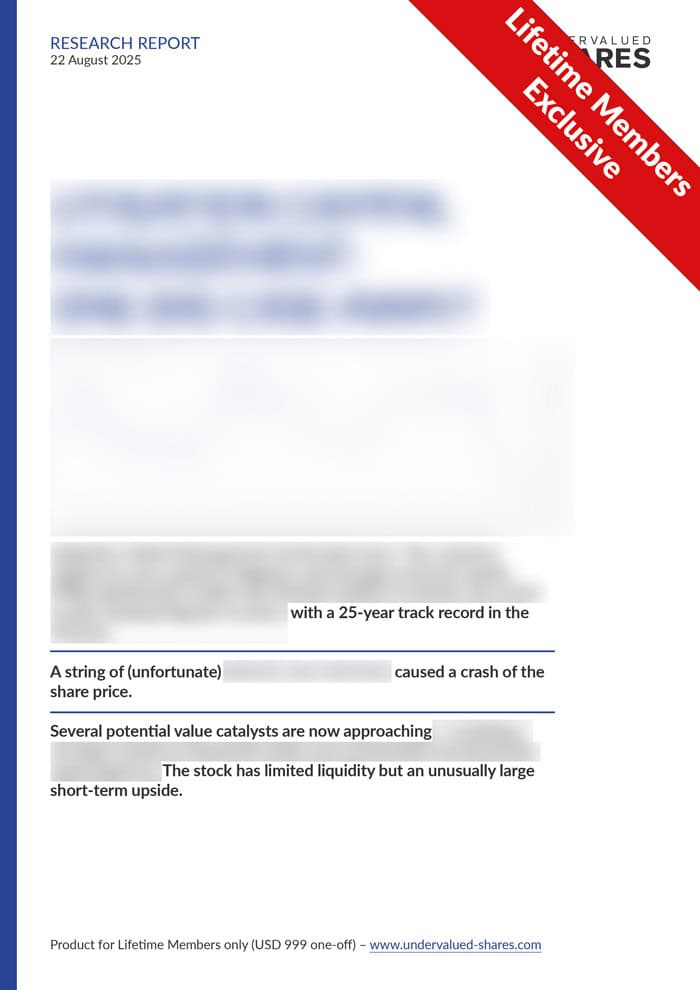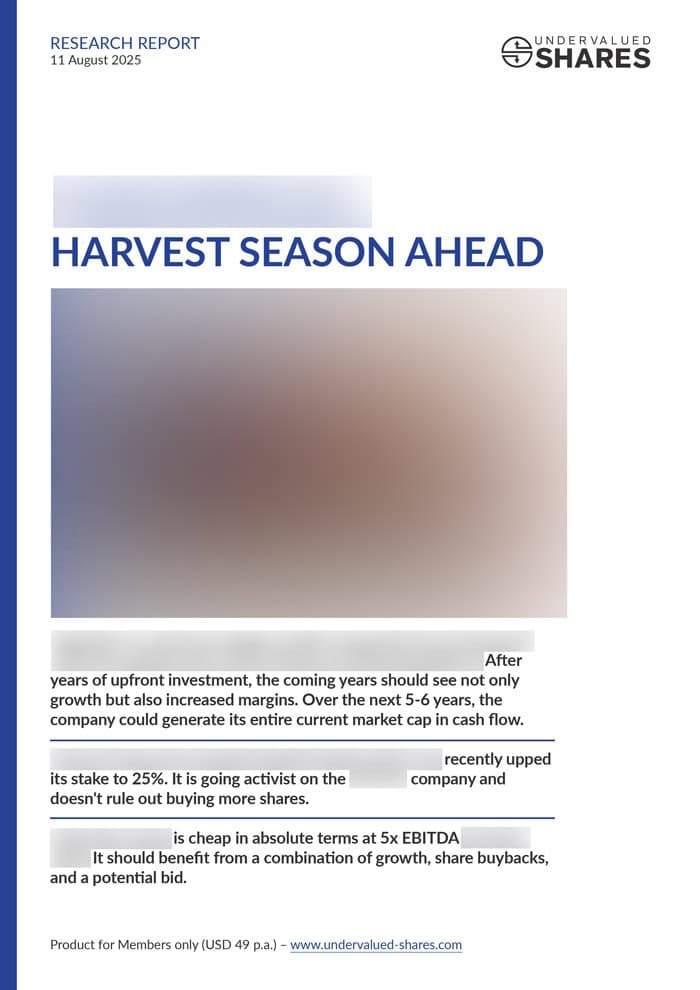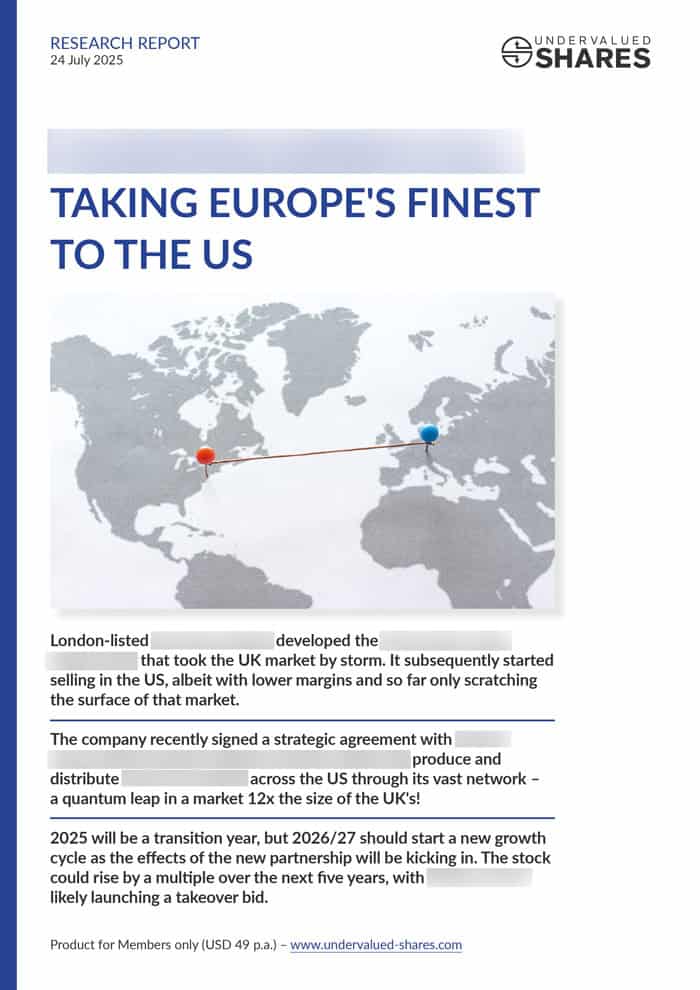Seaport Entertainment Group is a NYSE-listed play on the revival of New York’s southern tip. I visited the neighbourhood to evaluate the opportunity.
Looking forward to your pension? Time to wake up to the truth
It’s not often that I use my website to write about (and promote) someone else’s content.
However, after watching the documentary linked below not just once, but twice, I wanted to point everyone I know towards it. Not the least as its overall equity market related themes tie in nicely with some of the reporting that's about to be launched on this site – watch this space!
The $400 trillion funding shortfall
The 48-minute video documentary describes what is likely going to become the single biggest issue of financial markets over the next decades.
It’s dealing with the hundreds of trillions (!) of dollars of pension entitlements that exist around the world, and which the governments and organizations that owe them will increasingly be unable to deliver on. This is a matter that will take decades to unfold, but it can (and probably: will) make the 2008 financial crisis look like child’s play. Chances are, there will be a few cataclysmic financial events along the way, in the sense of “cliff-edge” developments.
You think I am exaggerating?
To give you an idea of the size of the problem: Between now and 2050, based on an estimate by the World Economic Forum, the issue of unfunded pension liabilities in eight of the world's largest economies amounts to $400tr. That is nearly five (!) times the size of the global economy! A good percentage of these liabilities is hidden from public view, e.g., by governments that don’t properly account for them. But they are liabilities that, based on underlying demographics, public policies and private contracts, will have to be dealt with. You can see a useful infographic here.
Questions the documentary is addressing include:
- How has this problem risen and why will it overwhelm parts of the existing financial system?
- What can you do to escape from it as much as possible?
- Which societal changes should you brace yourself for? How will it affect you as an individual?
There are no easy answers for any of this. But in the interest of your own financial survival and success, you need to educate yourself about them.
Raoul Pal offers a unique perspective
These issues are now starting to hit us. It’s not a matter of “If” or “When”, it’s something that is already affecting the societies, economies and financial markets of the developed world today.
The researcher and narrator of the video is Raoul Pal, who used to run a hedge-fund for GLG Partners, an elite hedge-fund firm before it was acquired by MAN Group. Raoul retired from this position, and today he publishes macroeconomic research that is used by funds, family offices, and governments.
He isn’t your average YouTube blogger or newsletter author. Raoul is someone who is at the top of the game when it comes to researching and analyzing global financial issues.
I first spotted the video when it came out two weeks ago. It’s part of a service that I have subscribed to for $180 per year, but this particular video is actually available for free to anyone who wants to watch it.
The publisher put it onto YouTube, and it has received 150,000 views so far. Which, depending on how you look at it, is either a lot or nothing at all. Within just two weeks, it has become the most viewed video of this particular YouTube channel, overtaking another video that had taken six months to rack up a similar number of views. It’s not just Raoul’s slightly geeky clientele watching this video, instead it has started to go viral elsewhere. I take that as a sign that more and more investors and savers are waking up to this issue.
Start educating yourself on overvalued and undervalued assets
I very much endorse the observations and conclusions Raoul delivers in his video.
As said before, I have now watched it twice. Understanding the issues that Raoul sets out can be crucial for your future financial well-being, and heavily influence your investment strategy and your approach to saving for retirement
It also touches on the issue of most asset classes now being either fully valued or even trading at ridiculously high prices. If you have money to invest, where can you put it without exposing yourself to the risk of buying at the peak of the cycle? Obviously, as publisher of Undervalues-Shares.com, this is a subject close to my heart and for which I want to help find solutions.
Watching this documentary is scary, but also informative and inspiring.
If you watch just one video or documentary in the next week or two, in your own interest, you might want to consider this one!
Next week: What’s new in Germany?
In the upcoming issue, I’ll go back to my usual style of reporting about specific equities and looking at interesting developments in one particular country. My former home country is up next – watch this space!
Did you find this article useful and enjoyable? If you want to read my next articles right when they come out, please sign up to my email list.
Share this post:







